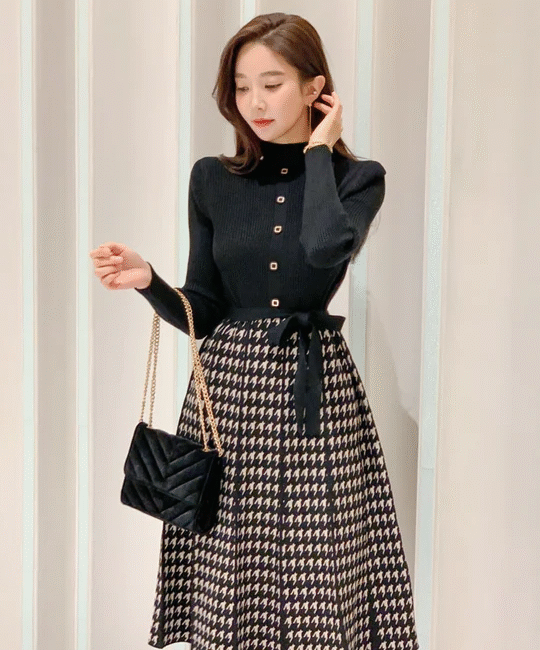
Dark Academia is more than a fashion trend; it is an immersive lifestyle, aesthetic movement, and philosophical mindset that celebrates intellectualism, classic literature, old universities, and the romanticized melancholy of scholarly life. Rooted in European academic traditions, Dark Academia draws inspiration from the architectural beauty of ivy-clad institutions, candlelit libraries, and the haunting echoes of classical music in old lecture halls. It thrives on the interplay between darkness and knowledge, where mystery, curiosity, and nostalgia converge in an elegantly brooding harmony.
The Historical and Cultural Foundations Behind Dark Academia
The aesthetic of Dark Academia is heavily influenced by the gothic literature of the 18th and 19th centuries, as well as the romantic poets and tragic philosophers whose work explored themes of death, beauty, and existentialism. Classic works by Edgar Allan Poe, Oscar Wilde, and Lord Byron set the tone for the deeply contemplative and emotionally intense world that Dark Academia seeks to recreate. The aesthetic often evokes images of ancient Greek and Latin studies, ink-stained manuscripts, and a deep reverence for knowledge and personal growth, all against a moody and often melancholic backdrop.
Fashion as Intellectual Expression in the World of Dark Academia
The Dark Academia wardrobe is as intentional as the lifestyle it supports. Earthy tones, tweed blazers, wool trousers, turtlenecks, oxford shoes, and pleated skirts define its visual identity. Each piece of clothing channels a sense of vintage academic charm and quiet sophistication. Accessories like leather satchels, wire-frame glasses, fountain pens, and classic watches complete the look. This style is not merely about appearance—it is a reflection of one’s devotion to literature, philosophy, and introspection. The clothing mirrors a mindset: timeless, thoughtful, and immersed in tradition.
The Role of Literature and Learning in the Dark Academia Lifestyle
At the heart of Dark Academia lies a passion for literature, libraries, and lifelong learning. Reading is not just a pastime—it is a form of escape, expression, and intellectual nourishment. Devotees of the aesthetic often immerse themselves in the works of Virginia Woolf, Albert Camus, and Sylvia Plath. There is a deep admiration for dead poets, forgotten languages, and the pursuit of esoteric knowledge. Study sessions under dim lighting, scribbled notes in leather journals, and the aroma of old books are all cherished aspects of the Dark Academia experience.
Romanticizing the Scholarly Life Through Art and Music
Art and music play a vital role in setting the tone for a Dark Academia ambiance. Classical compositions by Bach, Chopin, and Debussy create a hauntingly beautiful soundscape that evokes emotion and focus. Paintings of Renaissance and Baroque eras, sculptures from Greco-Roman antiquity, and black-and-white photography of historical landmarks often serve as aesthetic references. The art appreciated by this subculture often carries themes of melancholy, love, and death, allowing its followers to explore the bittersweet complexity of life and the human condition.
Architecture and Spaces That Reflect the Dark Academia Mood
Environment is crucial to the full immersion into the Dark Academia aesthetic. Ideal settings include ancient libraries with vaulted ceilings, candlelit studies, ivy-covered stone buildings, or even small personal corners adorned with book stacks, vintage lamps, and handwritten quotes. These spaces are designed not just for aesthetic appeal but to foster deep thought and creative inspiration. Whether it’s a rainy afternoon in a Victorian reading room or a solitary walk through an old university quad, the surroundings contribute profoundly to the overall experience.
Philosophy, Mortality, and the Dark Academia Mindset
Dark Academia embraces the romanticism of sorrow and the philosophical inquiry into mortality. Existential questions, personal introspection, and a longing for meaning and beauty in an often chaotic world are common themes. There’s a deep sense of nostalgia for eras past—a yearning to experience life through the lens of poets, philosophers, and thinkers who found beauty in tragedy and meaning in melancholy. This mindset creates space for both intellectual growth and emotional exploration, allowing followers to connect with deeper truths beyond the surface of modern life.
Digital Revival and the Popularity of Dark Academia in Modern Culture
In the digital age, Dark Academia has found a new life through social media platforms where users share moody photography, handwritten poetry, and curated book recommendations. Platforms like Tumblr, Instagram, and TikTok have allowed the aesthetic to thrive in global communities. People from different cultures are drawn to the unifying themes of beauty, knowledge, and a search for meaning. This modern revival has made Dark Academia more accessible, allowing anyone with a love for the past and a thirst for learning to participate and personalize the aesthetic.
Dark Academia as a Form of Self-Discovery and Identity
For many, Dark Academia offers more than visual appeal; it serves as a safe space for intellectual curiosity, self-expression, and emotional authenticity. It encourages individuals to delve into their inner world, engage with classical studies, and embrace both light and shadow within themselves. This balance between romanticism and realism makes it a compelling identity for students, creatives, and thinkers who feel disconnected from the fast-paced, superficial trends of modern society. The aesthetic empowers individuals to cultivate depth, mystery, and thoughtfulness in a world that often celebrates the opposite.
Conclusion: The Enduring Relevance of Dark Academia in a Changing World
In a time when digital distractions dominate daily life and shallow trends rise and fall overnight, the timeless elegance of Dark Academia offers a refuge. It is a return to the values of critical thinking, aesthetic beauty, emotional complexity, and scholarly pursuit. Whether through fashion, literature, or philosophy, Dark Academia invites us to slow down, look inward, and connect with the wisdom of the past.

